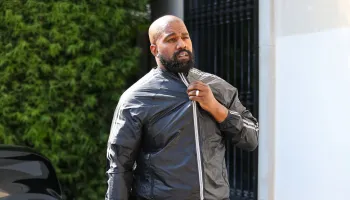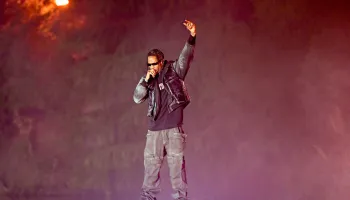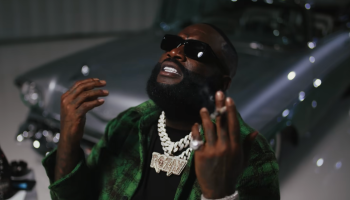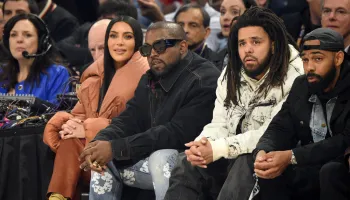George Zimmerman’s lawyer wants the public to know that when it comes to race, it was not a factor in the shooting death of Trayvon Martin.
Mike O’Mara has tried his hardest to make it clear that, despite public opinion, his client did not shoot and kill the unarmed teen based on the color of his skin.
Responding to an interview from Martin family lawyer, Benjamin Crump, in which he called race the “elephant in the room,” O’Mara denied that the teen being Black had anything to do with the alleged profiling that may have led to his death:
The term “elephant in the room” typically describes something that people won’t talk about — despite how obvious and apparent it is. This term is misapplied in this case. Mr. Crump has led a chorus of voices in drawing attention to the race factor in the George Zimmerman case, including comments from the President of the United States. While it can be safely argued that it is largely the question of civil rights issues that has made the George Zimmerman case a national — and international — story, there is nothing to support the contention of racism in the Zimmerman case.
O’Mara also brought up the 28-year-old accused killer’s racial background as defense behind his claims:
Let’s forget for a moment that George Zimmerman is Hispanic, not white. What Mr. Crump is saying is that race is an issue in the George Zimmerman case because, he insists, that if a black man shot a white person in a similar situation, the black man would have been immediately arrested. This is not an indictment of George Zimmerman; this is fundamentally an accusation that the Sanford Police Department acted in a racist way, and that perhaps the criminal justice system at large is biased against Black men.
The truth is that there is credible evidence that black men are overrepresented in the criminal justice system, and that is evidence of an underlying problem. Mark O’Mara and Don West have each spent a career in criminal defense fighting against racial bias in the justice system that affected many of their clients. This is something that needs to be discussed as a nation, and if this case has brought that conversation to the forefront, then now is the time to have that conversation.
Since his death in February, Martin has been looked at as being a victim of stereotyping due in part to wearing a hoodie. The youngster was visiting the Florida home of his father’s girlfriend, and was on his way back to the location from 7-Eleven, when he was spotted by Zimmerman. 911 calls revealed that Zimmerman, a former neighborhood watch captain, described the teen as being on drugs, and assumed that he looked suspicious. However, no evidence has been brought to the table proving that Zimmerman had reason to be fearful of Martin. After a brief altercation, which a police officer on the case said could have been avoided had Zimmerman stayed in his car instead of pursuing the high schooler, Martin was shot.
Now facing second-degree murder charges, Zimmerman asserts that he shot the teen in an act of self-defense. He also claims to have been attacked by Martin leading up to the fatal incident.
Zimmerman’s trial is expected to begin in the coming months, but does his cultural background bar him responsibility from possibly being racist?
Weigh in via the comments section below.
MORE ON HIP-HOP WIRED!
• RZA’s The Man With The Iron Fists Soundtrack & Score Deluxe Vinyl Packaging [PHOTOS]
• Jay-Z, Will Smith, Victor Cruz And More Attend Meek Mill’s Listening Session [PHOTOS]
• Wired 25: The 25 Most Influential Business Deals In Hip-Hop
• The Game Is Getting Hitched On TV, Marrying The Game Premieres On VH1 In November [PHOTOS]
• 8 Things You Need To Know About Meek Mill’s Dreams And Nightmares Album
• Bangin Candy: Rick Ross’ “Diced Pineapples” Stunner Bernice Burgos [PHOTOS]
• Wired 25: The 25 Most Influential Business Deals In Hip-Hop
• NYC High School Guidance Counselor Loses Job Over Racy Online Pics [PHOTOS]
—
Photo: Mass News Media















